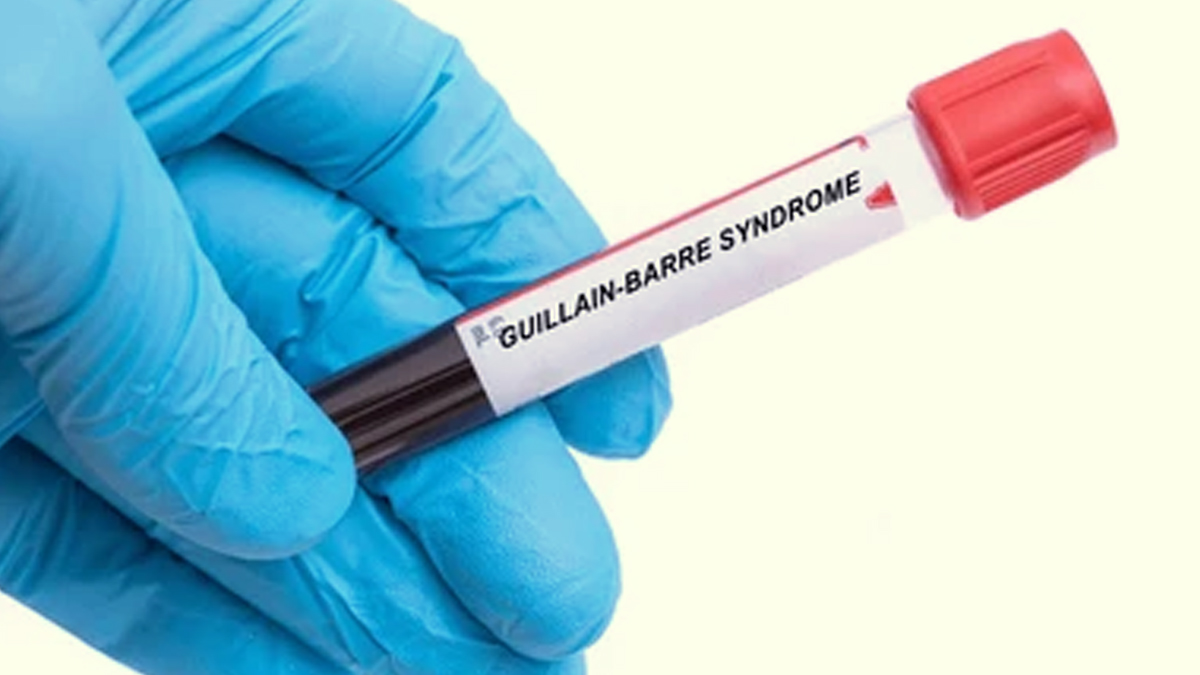
Guillain-Barré Syndrome (GBS), a rare autoimmune condition, has claimed another life in Pune, Maharashtra. Earlier this week, the state reported the first death, sharing that the number of cases has surpassed 100. So far, 16 new cases of the condition have been reported in Maharashtra.
Table of Content:-
As per the statement released by the health department, 121 stool samples were sent to the city-based National Institute of Virology (NIV) to be tested for the enteric virus panel. Twenty-one samples tested positive for norovirus, while five stool samples tested positive for Campylobacter.
It is important to note that while Campylobacter jejuni is the most commonly identified bacteria associated with GBS, other infections can also trigger the condition.
What Is Guillain-Barré Syndrome?

Guillain-Barré Syndrome (GBS) is a rare neurological disorder in which the body's immune system mistakenly attacks the peripheral nervous system. The autoimmune condition usually begins with weakness and tingling in the arms and legs, which can progress to more severe symptoms, including paralysis, explains Dr Hema Krishna P, Consultant - Neurology and Movement Disorders, Aster CMI Hospital, Bengaluru.
While the exact cause of GBS is not fully understood, it frequently follows an infection, such as a respiratory or gastrointestinal illness, Dr Hema tells the OnlyMyHealth team.
According to StatPearls Publishing, research shows that the immune system may get confused, especially after a Campylobacter jejuni infection, which is a bacterial infection.
Understanding Campylobacter Jejuni

According to the World Health Organization (WHO), Campylobacter is 1 of 4 key global causes of diarrhoeal diseases. It is considered to be the most common bacterial cause of human gastroenteritis in the world.
Campylobacter jejuni is a bacterium that usually causes food poisoning worldwide. This bacterium causes an infection called campylobacteriosis, characterised by diarrhoea, abdominal cramps, fever, and sometimes nausea and vomiting.
In severe cases, it can lead to complications like dehydration and GBS.
Infections Other Than C. Jejuni That Can Cause Guillain-Barré Syndrome
While C. jejuni is one of the most common infections that cause GBS, viral infections such as cytomegalovirus, Epstein-Barr virus, and Zika virus have also been associated with the onset of GBS, says Dr Hema. Bacterial infections, including those caused by Mycoplasma pneumoniae and certain strains of influenza, can also act as potential triggers, she adds.
According to the doctor, some infections can trigger the body's immune system to mistakenly attack its own nerves, causing GBS. This happens because the infection has parts that look very similar to parts of the nerves, confusing the immune system. Understanding which infections can lead to GBS helps doctors diagnose and treat it faster.
Also Read: Bacteria and Norovirus Linked to Guillain-Barre Syndrome Cases in Pune: Who Is Most at Risk?
Early Symptoms Of Guillain-Barré Syndrome

Some of the common GBS symptoms include:
- Muscle weakness, particularly in the legs, which may progress to the arms and facial muscles
- Sensations of tingling or numbness, which can precede muscle weakness
A GBS diagnosis can be confirmed with a clinical evaluation, including a detailed medical history and neurological examination. Additional diagnostic tools may include nerve conduction studies and lumbar puncture to analyse cerebrospinal fluid, which can help confirm the presence of elevated protein levels indicative of the syndrome.
How To Prevent Guillain-Barré Syndrome
According to Dr Hema, while there is no definitive method to prevent GBS, awareness of its potential triggers, such as certain infections or vaccinations, may help in mitigating risk factors.
Furthermore, demographic factors, including age and gender, as well as underlying health conditions, can influence an individual's susceptibility to developing this neurological disorder.
Thus, ongoing studies aim to identify those at greater risk and explore preventive strategies that could be implemented to reduce the incidence of GBS.
Treatment usually involves intravenous immunoglobulin (IVIG) therapy and plasmapheresis, both of which are designed to reduce the immune system's attack on the nervous system.
Conclusion
The GBS outbreak in Maharashtra highlights the severity of the rare autoimmune disorder. While often linked to Campylobacter jejuni infection, the condition can also occur due to various other infections, including norovirus. Early detection is crucial for effective treatment, and while prevention remains a challenge, awareness of potential triggers is important.
Also watch this video
Read Next
IBS Can Cause Both Constipation And Diarrhoea: Expert Explains Why This Happens And How To Manage It
How we keep this article up to date:
We work with experts and keep a close eye on the latest in health and wellness. Whenever there is a new research or helpful information, we update our articles with accurate and useful advice.
Current Version